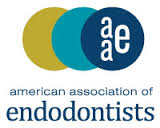Pain or discomfort in your jaw can be a sign of bruxing (chronic grinding and clenching your teeth) or TMJ, temporomandibular joint disorder. Sometimes the two are related. One can cause the other and vice versa. Bruxing is easier to diagnose than a TMJ disorder because there will be telltale signs of excessive wear on your teeth. So, if your jaw is sore and achy, you may want to contact your dentist for a thorough evaluation.
Symptoms of Bruxism and TMJ
If you are experiencing any of the following symptoms, your dentist can help you diagnose whether you are suffering from bruxism, TMJ, or a different disorder.
Bruxism Symptoms:
While many people only brux during their sleep, others brux during the day, as well. Symptoms of bruxing include:
- Sore, achy jaw
- Tight or stiff jaw
- Frequent dull headaches
- Sensitive teeth
- Worn, fractured, or loose teeth
- Ringing in the ears, or earaches
TMJ Symptoms:
Bruxing can lead to a TMJ disorder, and vice versa. Many of the symptoms are the same, as well:
- Tender, sore, or achy jaw
- Pain when chewing
- Popping, catching, or clicking jaw
- Stiff or locking jaw, or difficulty opening your mouth all the way
- Pain and/or ringing in the ears
TMJ
Your temporomandibular joint is your jaw joint, of which you have one on each side of your face in front of each ear. Chronic bruxing can put excessive stress on your TMJs leading to a temporomandibular joint disorder, or TMD. TMDs can be difficult to diagnose, but treatment for TMDs and bruxing are generally conservative and consist of a mouth guard that you wear while sleeping.










